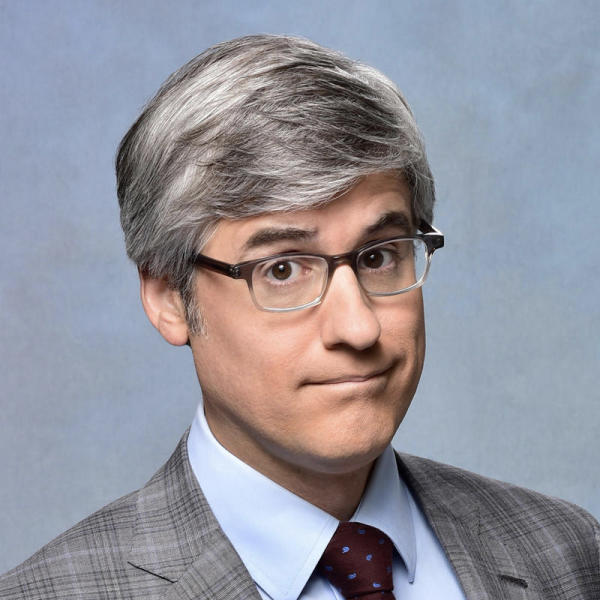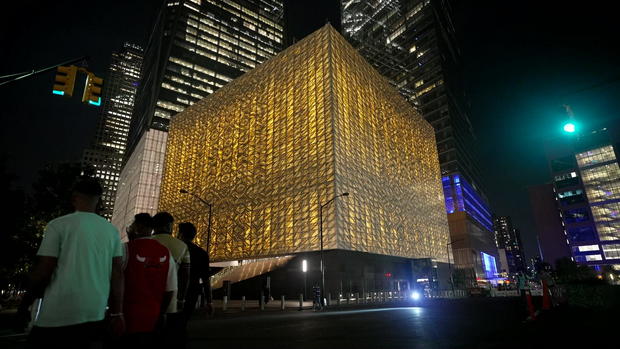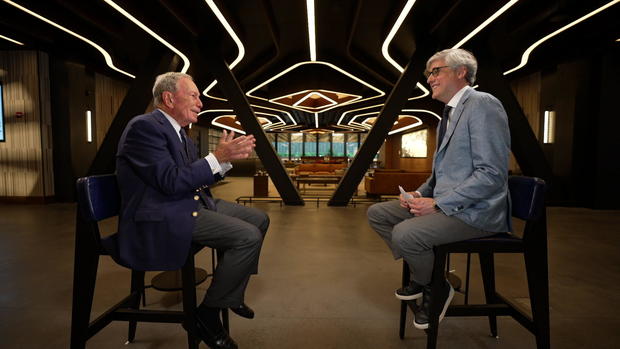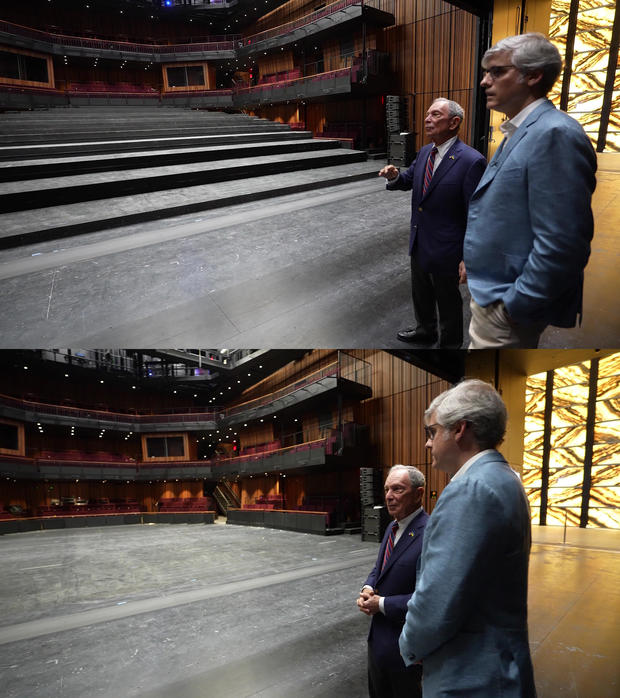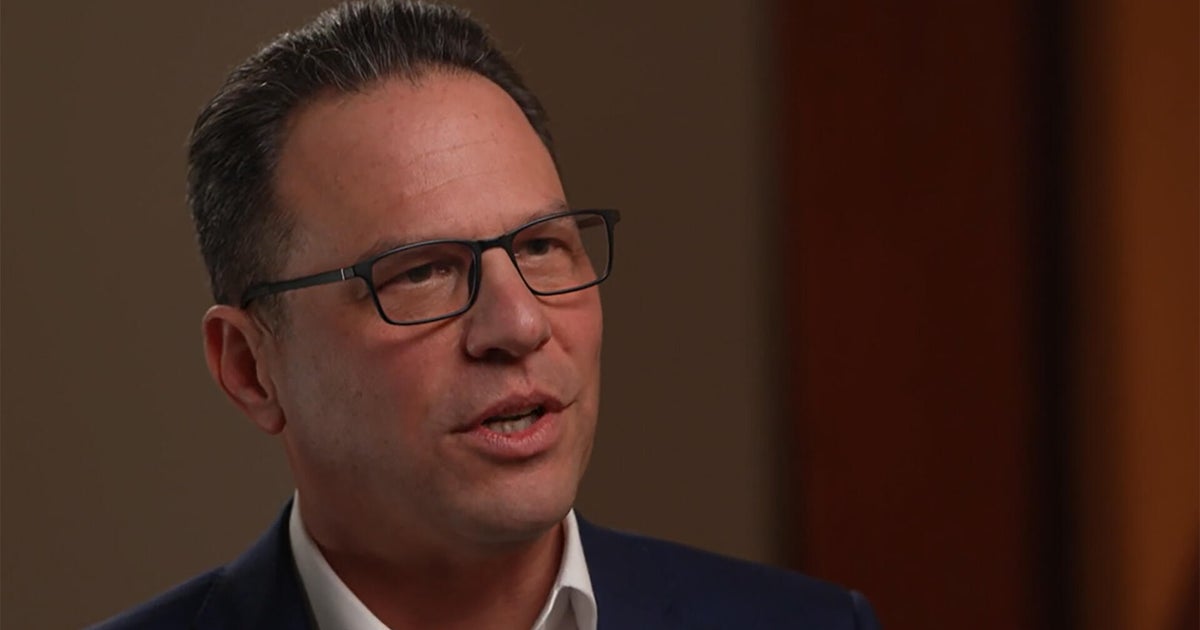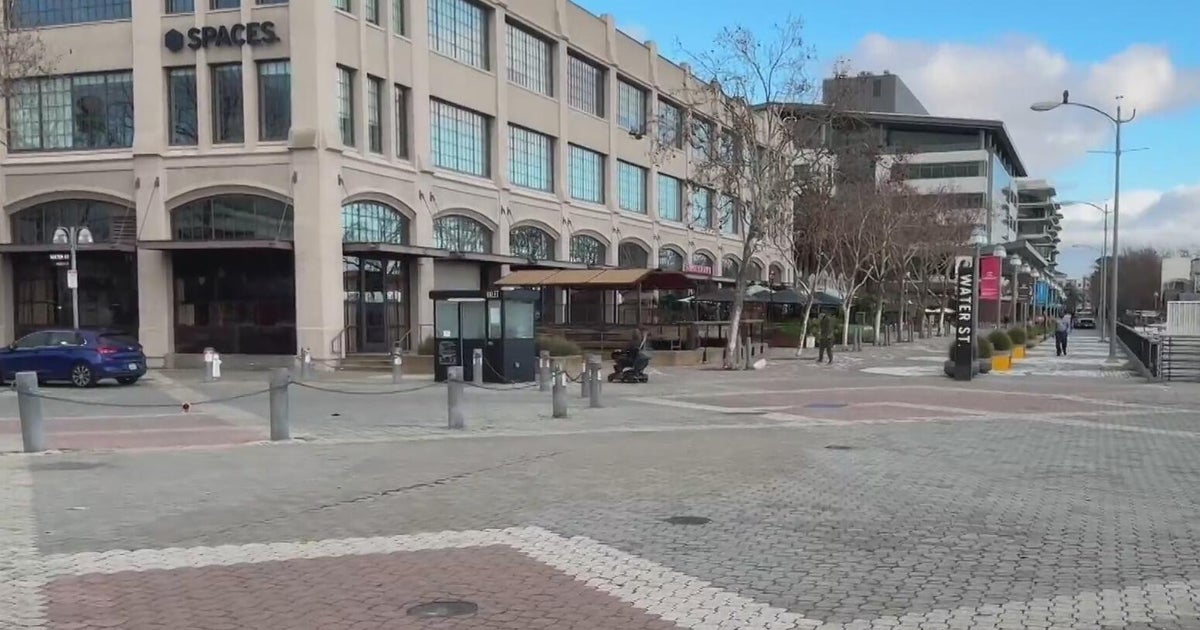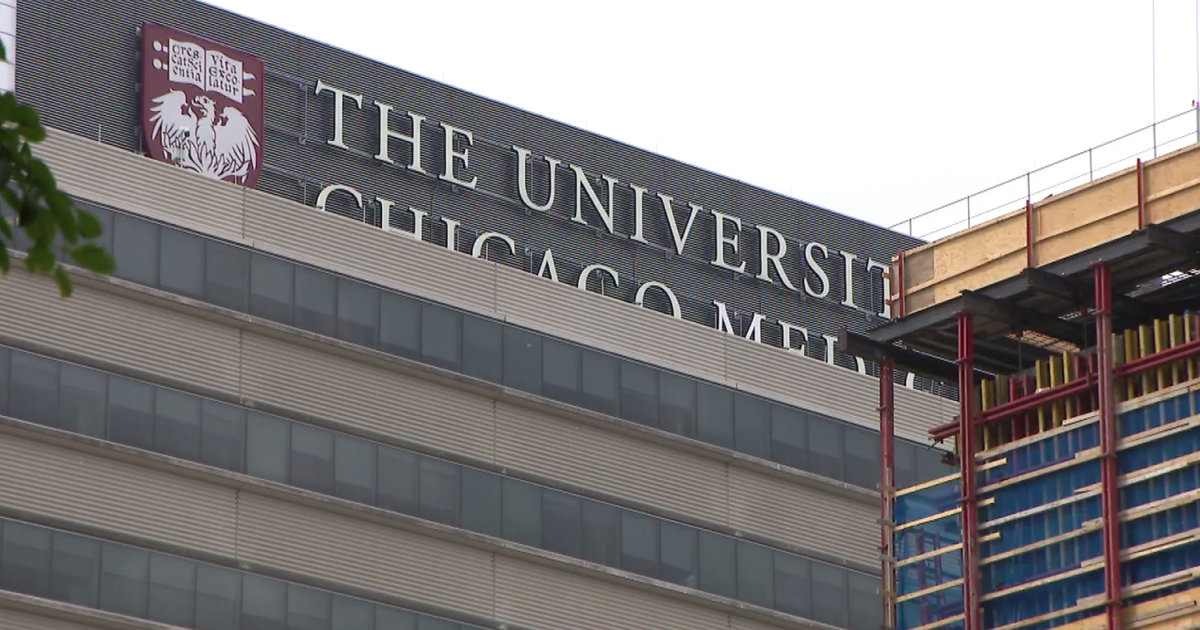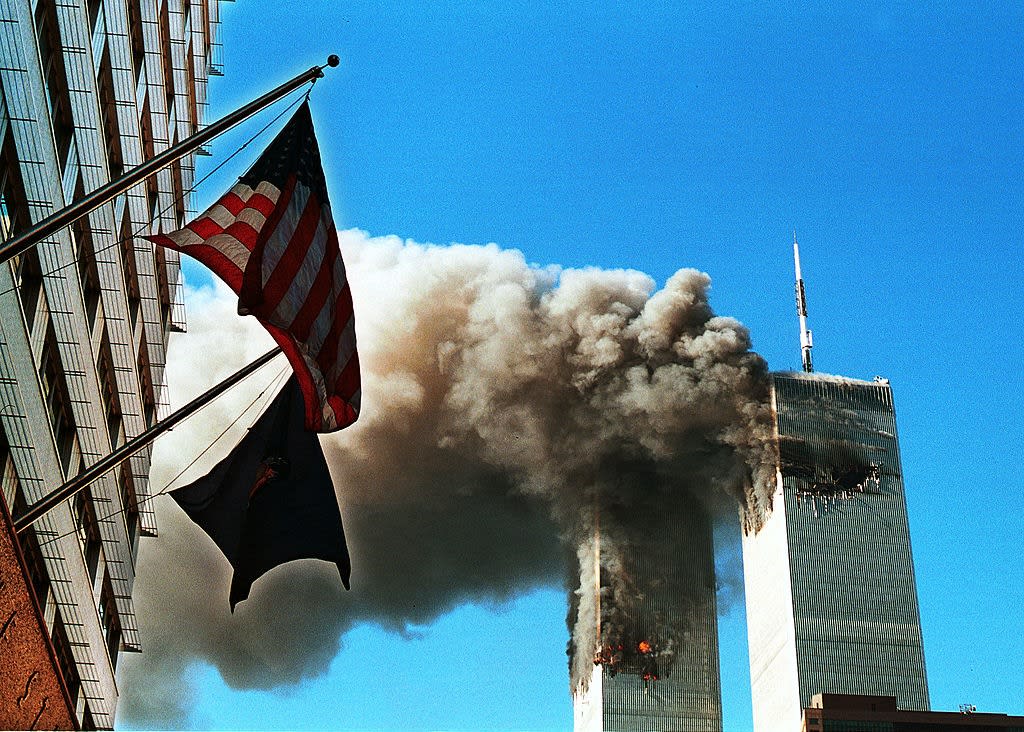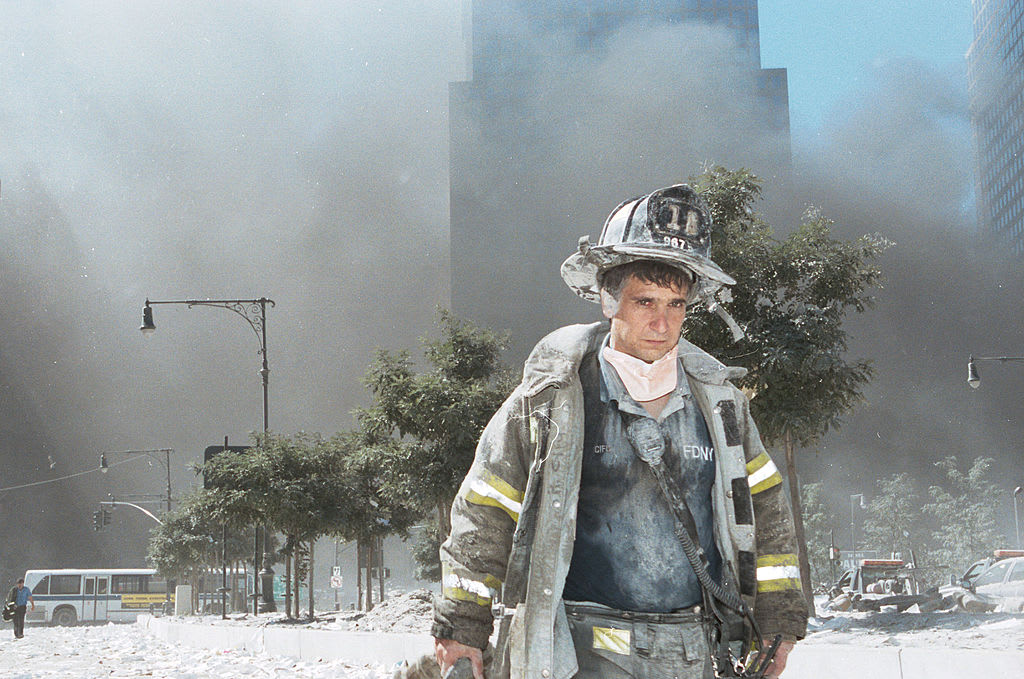Michael Bloomberg on reviving lower Manhattan through the arts
In the shadow of where the Twin Towers once stood in New York City, glowing above the memorial pools honoring the nearly three thousand people killed on September 11, 2001, stands a shining new monument to the living. The $500 million Perelman Performing Arts Center opens its doors later this month. The PAC, as it's known, is the final major piece of the redevelopment of the World Trade Center site.
It is also the coda to a remarkable story of the revival of a neighborhood that many thought would never recover. Yet, while there were 30,000 people living in downtown Manhattan in 2001 just before the attacks, in 2020 that number had grown to roughly double.
"Today it is a residential area," said former Mayor Michael Bloomberg. "When I worked on Wall Street, there was nobody at the streets at night, and now the streets are packed with people."
How did that happen? "Well, we made it safe and we made it inviting, all the things that you should do to make any city attractive," Bloomberg replied.
When he was first elected mayor of New York, Ground Zero was still burning. The emotionally-fraught task of rebuilding it became a decades-long project that didn't end when he left office in 2013. Today, Bloomberg is the chairman of both the 9/11 Memorial and The PAC, and has donated $130 million to the new arts center alone. "The design was to have a place for families to grieve, but also to have something for those families to live and to enjoy life," he said, "because the deceased, I always thought, would want their families to be able to have a life, and to remember them but go on and look to the future."
Bloomberg's twelve years in office coincided with an urban renaissance, not just in New York, but in cities across the United States. Downtowns flourished as crime fell to its lowest rate in decades – a far cry from where many American cities find themselves today.
Rocca asked, "Compared to early 2020, before the pandemic, most American cities by most measures are still worse off," Rocca said. "What is the number one thing that has to happen for cities, in general, in the U.S. to turn it around?"
"Well, the first thing, you got to stop crime and get guns off the streets," Bloomberg replied. "There's no secrets here to this stuff. All these problems are problems that we know how to solve, but you got to have the desire to do so."
Bloomberg's success here has made him something of an authority on metropolises worldwide. His foundation has worked with cities from Atlanta to Lima to Milan.
He's bullish on cities in general: "Oh yeah, absolutely. They have to get their crime rate lower and get the garbage picked up quicker and make their school systems better and enforce the law better and that sort of thing. And if they do that, they'll be fine. Look, what we all forget is, history shows we've been there before."
After 9/11, many worried that residents and businesses would flee New York, setting off a vicious cycle: empty buildings leading to lower tax revenues, cuts in essential services, higher crime, and ultimately more people leaving.
That didn't happen then.
But the rise of remote work in recent years has reignited those fears in many American cities. Bloomberg himself has written that he wants remote workers to return to their offices.
"But remote working is here to stay," said Rocca. "In Minneapolis, the mayor there said, he thinks it's going to top out at 75 percent coming back."
"He doesn't know what he's talking about," said Bloomberg.
"You think more people will come back?"
"Because I don't know how to -- I can't work with you if it's over Zoom!"
"Yeah. But realistically, what percentage of office workers are going to come back? They're going to be office towers that are still empty."
"I'm not sure why that's true," Bloomberg said. "I will say we are paying our employees for five days a week of work. Okay? Now, if you think that those can be done at home, I don't know. But every golf course that I've heard about in the last three years has had record summers, okay? It is funny, but it's tragic."
"Can you imagine, say in 20, 30, 40 years, cities, downtowns that are primarily residential where people aren't commuting to go to work?" asked Rocca.
"Human beings probably don't change very quickly in what they do," Bloomberg replied. "You can't do the same thing via Zoom that you can do face-to-face. Period."
Now 81, Bloomberg is worth an estimated $96 billion. He has pledged to give away the majority of his wealth, including his stake in the company he founded.
Notably The PAC is named after Ron Perelman, who donated less money than Bloomberg. So, why isn't it called the Bloomberg Center? "Well, number one, he started it," Bloomberg replied. "Number two, my name's on too many things already, I think!"
But Bloomberg has contributed far more than money, says PAC artistic director Bill Rauch: "There's no question that this building would not exist without Mike. I think Mike really believes deeply that arts would be a vital element of how to rebuild down here."
"More than just sort of a nice thing to have?" asked Rocca.
"Oh, absolutely!"
PAC executive director Khady Kamara added, "I think theater, and arts in general, have such an impact in the communities that they're a part of. And I do believe that they're essential to the nurturing of the soul."
"I'm not surprised that you believe that," said Rocca. "But was it reassuring, surprising to find that somebody like Mike Bloomberg believes that as well?"
"It was exciting to see that there is so much dedication to see it through over the course of these 20-plus years, but not surprising," Kamara replied.
The former mayor is particularly excited by the performance space's adaptability. The three theaters can be configured into more than 60 different ways to feature theater, dance, music, opera and film.
But for the mogul-turned-mayor-turned-benefactor, this building is about more than the art inside. It is art's ability to transform a place.
"We started out to give people a place to mourn, to remind us that if we don't pull together, we can't do amazing things, but if we can, we can against all odds and all of the prognostications, really create something," he said. "The bottom line is, if there is culture here, businesses and people will move into that area and follow it. That's why, in the end, New York, you can be reasonably sure, is going to survive and do well."
For more info:
Story produced by Mark Hudspeth. Editor: Steven Tyler.
See also:
- The view from 1 WTC ("Sunday Morning")
- 9/11: Sorrow and healing coexist at ground zero site ("Sunday Morning")
- Nature: The World Trade Center memorial (Video) ("Sunday Morning")
- Richard Drew on photographing the "Falling Man" on 9/11 ("Sunday Morning")
- GALLERY: Oculus: The new World Trade Center transportation hub
- GALLERY: One World Trade Center
